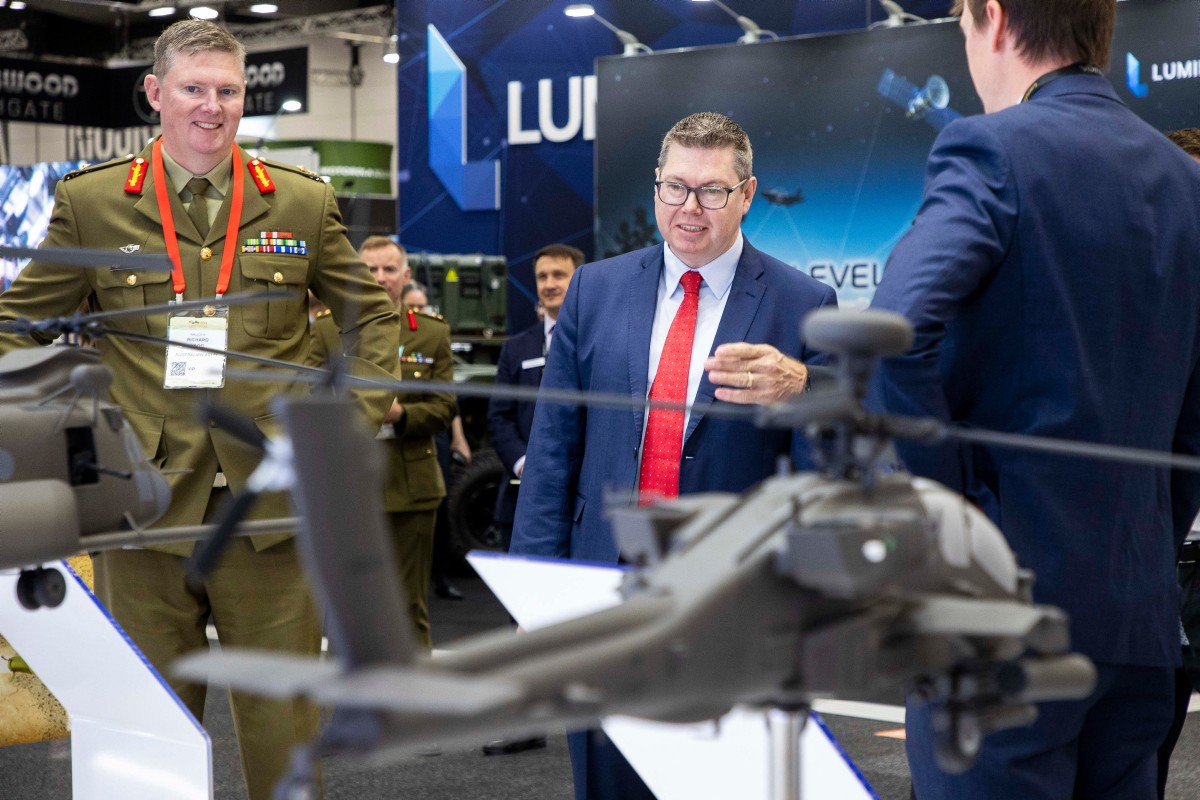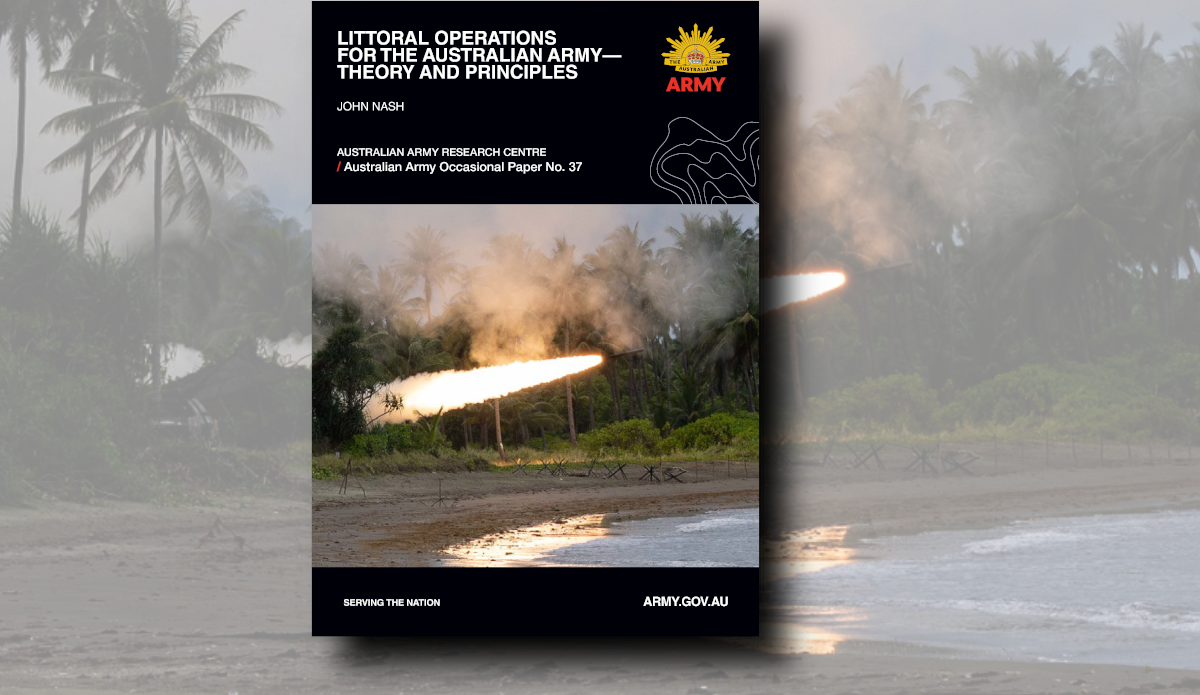The Future of Warfare
The Australian National University launched the Futures Hub earlier this year. The hub explores future trends and to promulgate consumable material that helps to inform decision-makers. This site has now reached a healthy quorum of analytic material of interest to Army, namely:
- That ‘Asia will go from being a global centre of economic growth and political stability, to a centre of economic power but political instability’ (here).
- That ‘Economic growth in Southeast Asia will taper off, regional integration will stagnate, and governments will move closer to China.’ (here).
- That ‘Australia’s politicians will be increasingly challenged by the adoption of technologies throughout society and industry, which will create vulnerabilities for competing nations to leverage access for political gain’ (here).
- That in the Middle East, ‘Whilst the region’s authoritarian leaders are likely to use COVID-19 as cover for increased control, environmental impacts are likely to cause greater long-term social instability across the region’ (here).
Major Power Competition
In the context of the use of ‘grey zone’ terminology in the Defence Strategic Update, this piece from John Arquillia at the Naval Postgraduate School offers a view of ‘perils of the grey zone’. This piece argues that there is robust literature in the field of irregular warfare that serves to illuminate the space that is currently being ill-defined by Grey Zone terminology.
A facet of Accelerated Warfare, the rapid proliferation of UAVs and cruise missiles, is examined here by the National Defence University’s Centre for the Study of Weapons of Mass Destruction. This paper opens with the important recognition that the ‘small, smart and many revolution’ is ‘providing state and non-state actors with capabilities that previously belonged only to great powers.’ One of the authors, T.X. Hammes, provided an earlier talk for the AARC Seminar Series on the 4th Industrial Revolution and the changing character of war, themes elaborated upon within this article.
Also in the field of technology, recent news of Intel Corp’s decision to outsource the manufacturing of semi-conductors, is being heralded as having much greater geostrategic implications. U.S. competitive advantage in high-technology manufacturing might be undermined should Silicon Valley expertise and sovereign supply chains begin to move offshore.
Cyber / Information Domain
In a recent report by RAND urges strategists to adapt U.S. grand strategy to the information age, favouring the use of “soft power”. Interestingly, it argues the creation of international “special media forces” to manage rumour control and a battle of narratives in theatre. It also argues a focus upon the cause of the “global commons” as a pivotal issue area. In sum, the report argues the ‘urgent need to rethink statecraft for the information age.’
The Regional View
A recent report from the CTC Sentinel offers an overview of the enduring threat posed by Islamic State in Southeast Asia. This analysis is valuable in that it includes detailed consideration of the nature, frequency and types of attacks undertaken by Islamic State in Southeast Asia. With this detail, the report concludes that ‘sustained pressure’ through policing actions has resulted in declining success rates of attacks.
This analysis of Islamic State in Southeast Asia is a companion piece to earlier CTC Sentinel analysis examining the operations against the Islamic State Khorasan in Afghanistan and Pakistan over 2015-2018. The theme of sustained pressure on terror networks is reinforced, incorporating targeting across all tiers of leadership, policing and ground actions and incentivising the surrender of militants. This analysis, more comprehensive than that examining Islamic State in Southeast Asia due to the larger dataset, offers insight into what is currently trending as a successful counter-terrorism strategy.
Deterrence
From The Diplomat, a reminder that for Defence practitioners, nuclear deterrence remains an issue 75 years after the employment of nuclear weapons at Hiroshima and Nagasaki. With the Defence Strategic Update re-focussing attention onto the topic of deterrence, we will look to support a conversation in Defence around this topic initiated here and to be continued through routine articles in this forum. A key issue has been understanding how might Deterrence theory apply to the Australian context and to evolve with the Information Age? Artificial Intelligence (AI) was initially researched in the U.S. to help inform an understanding of adversaries and the likelihood of certain courses of action, which is critical to the successful crafting of Deterrence communication. This piece from the Centre for a New American Security explores U.S. DoD roadblocks to the adoption of AI that helps to inform the disconcerting discussion of what AI-enabled Deterrence might look like.
Events:
- The ASPI Strategic Vision conference continues online, until 14 Aug, with details available here.
- Dr Gregory Raymond of the Strategic and Defence Studies Centre, is presenting on the Geoeconomics of Mainland Southeast Asia, from 6-7pm on 11 Aug 2020.
- The AARC Seminar Series will be hosting a discussion on the impacts of Quantum Computing with the RICO cell of Future Land Warfare Branch in the R1 Theatre at 1200-1300 on 13 Aug. Registration will be through EventBrite, follow us here to be notified of registrations.
- The AARC Seminar Series will be hosting Dr Charles Edel of the U.S. Studies Centre discussing the US-Australia Alliance and the role of Land Power within Indo-Pacific Competition in the R1 Theatre at 1200-1300 on 27 Aug. Registration will be through EventBrite, follow us here to be notified of registrations.


